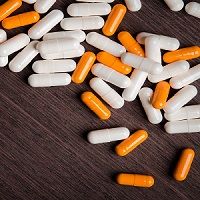Efficacy and Safety Comparable Between Tocilizumab and Biosimilar
For safety, the proportions of patients with serious treatment-emergent adverse events in the second treatment period were similar between the treatment groups.

A proposed biosimilar for tocilzumab is showing promise as a treatment for rheumatoid arthritis, in data presented during the 2022 American College of Rheumatology Convergence Meeting in Philadelphia.
A team, led by Xiaomei Leng, Peking Union Medical College Hospital, Department of Rheumatology and Clinical Immunology, reported on the results of week 24-48 on the efficacy and safety of BAT1806, a proposed biosimilar of tocilizumab.
The Biosimilar
Recently, the investigators reported the results of a phase 3, randomized, double-blind, active-controlled trial showing BAT1806 has equivalent efficacy and compared safety, immunogenicity, and pharmacokinetic profiles as tocilizumab up to week 24.
In the study, the investigators examined patienrts with a diagnosis of rheumatoid arthritis
Each participant was diagnosed with rheumatoid arthritis according to the ACR/EULAR 2010 revised classification for at least 6 months prior to screening and met the protocol-specified inclusion/exclusion criteria.
The patients were randomized in a 2:1:1 ratio to either BAT1806 up to week 48, tocilizumab up to week 48, or tocilizumab up to week 24 followed by BAT1806 from week 24-48. The treatments were administered intracvenously every 4 weeks at a dose of 8 mg/kg.
Efficacy
The team assessed efficacy in terms ACR20/50/70 response probabilities and DAS28-ESR and DAS28-CRP, PK, safety, and immunogenicity for up to week 48 between 2019 and 2020.
There were 621 patients included in the study, 290 (92.9%), 142 (92.2%), and 145 (93.5%) in groups 1, 2, and 3 continuing treatment period 2.
The baseline characteristics were similar across each group at week 24.
The results show ACR20 responders as proportions of evaluateble subjects were 90.4% (n = 253), 90.3% (n = 121), and 87.8% (n = 122) for groups 1, 2, and 3, respectively. ACR20/50/70 responses and mean change in DAS28-ESR and DAS28-CRP from baseline were comparable across the different groups.
For safety, the proportions of patients with serious treatment-emergent adverse events in the second treatment periodwere similar between the treatment groups and there were no deaths reported during treatment period 2.
There were 8 participants in group 1 that reported 9 serious treatment emergent adverse events, 2 of which were possibly treatment related.
In addition, 5 patients in group 2 reported 5 serious treatment emergent adverse events, 1 of which was possibly treatment related and there were 5 serious treatment emergent adverse events in 4 patients in group 3, 1 of which was possibly treatment related.
Anti-drug antibodies were reported at least once in 21.0%, 16.2%, and 18.6% of subjects in treatment groups 1, 2, and 3, respectively, all but 1 of which were in the tocilizumab group tested positive for neutralizing antibodies.
The geometric mean through serum concentrations (µg/mL) were comparable for the 3 treatment groups: 13.1 (126.5), 12.7 (157.0), 12.4 (180.7) at Week 28 and 12.3 (82.7), 13.4 (89.2), 13.5 (130.6) at Week 44 for groups 1, 2, and 3, respectively.
“Efficacy, safety, immunogenicity, and PK profiles were comparable between BAT1806, TCZ/BAT1806, and TCZ throughout TP2,” the authors wrote. “No safety or clinically relevant immunogenicity issues were observed in subjects switched from TCZ to BAT1806.”
The study, “Fifty-two-week Results from a Phase 3, Randomized, Double-blind, Active-controlled Clinical Trial to Compare BAT1806/BIIB800, a Proposed Tocilizumab Biosimilar, with a Tocilizumab Reference Product in Subjects with Moderate to Severe RA with an Inadequate Response to Methotrexate,” was published online in ACR.